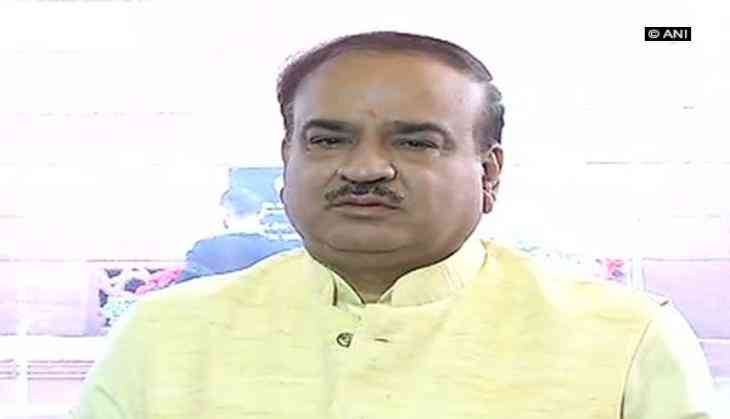
Union Parliamentary Affairs Minister Ananth Kumar on Wednesday said that the Congress party was following the British policy of divide and rule in connection with the Bhima-Koregaon violence in Maharashtra.
The Union Minister's statement has come after the leader of the opposition, Mallikarjun Kharge, blamed Rashtriya Swayamsevak Sangh (RSS) for inciting violence and demanded Prime Minister Narendra Modi's statement on it.
Kumar, however, alleged that it was the Congress party who was raking up the issue by politicising it for personal gains.
"Mallikarjun Kharge and the Congress party want to ignite the chaos that has been witnessed in Maharashtra. He wants to do politics on it. They are disappointed as they have lost the election in both Gujarat and Himachal Pradesh,'' Kumar said in the Lok Sabha.
He added, "Instead of spreading a message for peace, the Congress has adopted the British policy of divide and rule. They are trying to create differences in society. We highly condemn it," he added.
Kharge, Madhepura MP Pappu Yadav and the Jan Adhikar Party (JAP) leader gave adjournment motion notice in the Lok Sabha under rule 56.
Communist Party of India (CPI) leader D Raja has also given zero hour notice in the Rajya Sabha over "increasing atrocities against Dalits" and Congress MP Rajni Patil has moved adjournment motion notice in Rajya Sabha under rule 267 in the wake of protest.
Meanwhile, angry Dalit protestors hit the street in several districts of the state, creating tension in the area. They even halted buses, auto-rickshaws at Lal Bahadur Shastri Road in Thane.
A large number of protesters occupied the railway tracks at Nallasopara Station, disrupting the normal rail traffic.
The situation in Maharashtra intensified after clashes broke out between the Dalits and alleged right-wing groups on Monday, during the bicentenary celebration of the Bhima-Koregaon battle near Pune.
The observance of 'Victory Day' was objected by the right-wing groups as they considered it to be an anti-national celebration.
In the battle, which was fought between the British East India Company, containing Dalits in its infantry, and the Peshwas, who were upper-caste Brahmins, at Koregaon Bhima on January 1, 1818, the Marathas ultimately withdrew. Since then, the lower-caste communities have been viewing it as a symbolic victory for themselves.
-AN


